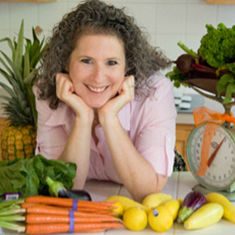Anxiety Nutrition Solutions
– Audio & Transcript Bundle from Anxiety Summit Experts
With host Trudy Scott, Food Mood Expert and Nutritionist
Thank you for requesting your “anxiety nutrition solutions” gift.
Please use the download links below.
Look out for some additional content-based emails from me with snippets from these interviews. You’ll also start receiving my popular online newsletter “Anxiety Nutrition Solutions” which is filled with food and mood articles, recent research and case studies about amino acids for anxiety, recipes, event information and more. (If you find it’s not for you, you can unsubscribe at any time using the link at the bottom of every newsletter.)
Dr. Felice Jacka, Principal Research Fellow at Deakin University, Melbourne, Australia

The Research: Food to prevent and treat anxiety and depression?
- Organizations and collaboration in nutritional psychiatry research and prevention
- Study: Traditional diet lowers the risk of anxiety and depression in women
- The surprising benefits of grass-fed red meat for improved mood
- Food and mental health research in Norway, Japan, UK and Spain, across all ages and socioeconomic levels
- Ongoing research on diet to prevent depression and future research on the gut
Mira Dessy, Certified Nutrition Educator, Real Food Advocate, and author of The Pantry Principle

How additives in your food can make you anxious
- neurobehavioral effects of artificial sweeteners Aspartame and Splenda
- MSG: effects on the HPA axis and serotonin
- the ‘mystery math’ of trans fats, azodicarbonamide/ADA and BVO
- the endocrine disrupting chemical BPA
Dr. Ted Dinan MD, PhD, Professor of Psychiatry at University College Cork

Microbes in the gut and psychobiotics as a potential treatment for anxiety and depression
- Varied ways in which anxiety presents
- Anxiety as a co-morbid condition e.g. irritable bowel syndrome
- Microbes in the gut and the influence on emotional activity
- Non-pharmacological approaches to treating anxiety
- Psychobiotics as a potential treatment and the newest research in this area
Julia Rucklidge PhD, Professor of Clinical Psychology

What if… Nutrition could Treat Anxiety and Depression?
- The increasing prevalence of mental health problems and medication side-effects
- Why diet is so important when it comes to mental health (anxiety, depression, ADHD and even schizophrenia)
- Nutritional medicine as mainstream in psychiatry and ISNPR (International Society for Nutritional Psychiatry Research)
- The problems with food: pesticides, soil quality, Roundup
- Micronutrient research for ADHD, anxiety, bipolar and PTSD)
- The emerging field of nutritional mental health: Inflammation, the microbiome, oxidative stress, and mitochondrial function
Trudy Scott CN, host of the Anxiety Summit, Food Mood expert and author of The Antianxiety Food Solution

Pyroluria, Amino Acids and Anxiety: Troubleshooting when you are not getting results
- Pyroluria and the effects of leaky gut, oxalates and low oxytocin levels
- CFS, ADHD, autism, alcoholism, Lyme disease: the pyroluria connection
- Introversion and musician’s dystonia: an update on the pyroluria connection
- Troubleshooting the pyroluria protocol and mistakes I see
- Testing for pyroluria, zinc, vitamin B6 and fatty acids
- The 8 factors that make the targeted individual amino acids more effective
- What to do when the amino acids are not working
- Concerns about quinolinic acid and tryptophan?
Dr. Zendi Moldenhauer, PhD, NP, RN

Anxiety in children, adolescents and young adults: an integrative psychiatric approach
- The incidence of anxiety in children: official stats and real life numbers
- How to identify anxiety in children and the IBS-anxiety connection
- Medication over-prescribing, hidden side-effects and electroshock
- Food, toxins, gut health, the adrenals and an integrative approach
- How to use calming theanine and GABA
The information provided on this site and via the interviews is for informational purposes only and is not intended as a substitute for advice from your physician or other health care professional. You should consult with a healthcare professional before starting any diet, exercise, or supplementation program, before taking or stopping any medication, or if you have or suspect you may have a health problem.
2025 ©Trudy Scott. All rights reserved.